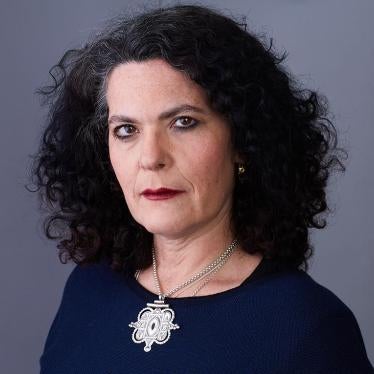|
Commentary
Abortion should not be a crime
Published in:
The Korea Times
Punitive abortion laws - like in South Korea - violate human rights. In recent weeks, the government has threatened to toughen penalties on medical providers who perform abortions illegally. Women’s groups and experts are fighting to make the government back down on this threat.
Rather than further penalizing providers, the government should fully decriminalize abortion. It should remove penalties for women who seek abortion and for medical providers of abortions.
At present, the law treats abortion as a crime, but sets out exceptions. Women may only legally obtain an abortion in cases of rape or incest, if the parents cannot marry legally, if continuation of the pregnancy is likely to jeopardize the pregnant woman’ health, or when the pregnant woman or her spouse has one of a limited number of designated hereditary disorders or communicable diseases.
Women who are married must have their spouse’s permission to obtain an abortion. Any abortion, regardless of motivation or context, is prohibited after 24 weeks of pregnancy. A woman who gets an abortion is subject to up to one year of imprisonment or fines up to 2 million won, and healthcare workers who provide abortions can face up to two years in prison.
In spite of these restrictions, abortion is widely available in South Korea, and prosecutions for abortion are rare. But that doesn’t mean there isn’t a problem.
When abortion is illegal, the risks increase for women. South Korea’s punitive laws on abortion mean that many abortions performed in the country take place illegally. This forces women and girls who seek abortions into a legal no man’s land where abortion care is unregulated, clandestine, and riskier than if it were legal.
According to 2008 data, an estimated13 percent of maternal deaths worldwide are due to unsafe abortion, and the World Health Organization estimates that 47,000 women die from unsafe abortions each year. Restrictive abortion policies are associated with higher numbers of unsafe abortions.
In South Korea, the generally high quality of medical services may mitigate that risk. But the fact remains that neither women, nor their doctors, should have to sneak around. Under international human rights law, which South Korea has pledged to uphold, denying a woman access to abortion can constitute cruel, inhuman and degrading treatment, and violate a range of other human rights.
The South Korea government’s recent interest in restricting abortion may be linked to the country’s falling birthrate, which are far below the level necessary to sustain current population levels, and are contributing to the country’s rapidly aging population. But cracking down further on abortion is neither a practical nor a legal approach to increasing the birth rate.
Research around the world shows that when governments restrict abortion, women still have abortions — they just have more dangerous ones. According to a UN report, the average unsafe abortion rate was more than four times greater in countries with restrictive abortion policies in 2011 than in countries with liberal abortion policies.
If the government’s main goal is to increase the birthrate, there are many steps to make it easier for people to decide to have children, or to have more children. Enhanced access to pre-natal and obstetric care, generous parental leave for both women and men, measures to ensure equality and lack of stigma for single and unmarried parents and their children, free or subsidized child care, and improved access to high quality free education for children are just a few strategies that might encourage increases in the birth rate. The government has taken small steps in this direction, but could do much more.
If the government disapproves of the number of abortions being performed, there are effective ways to address that too, which do not involve violating women’s right to make their own reproductive choices. There will always be situations in which women and girls need access to abortions, but the number of abortions required can be reduced by providing good sexuality education and easy access to family planning information and services, including free contraceptive supplies, for everyone, including adolescents.
It’s time for South Korea to fully respect women’s rights. Pregnant women and girls need to be able to make decisions about abortion, without the threat of criminal penalties. The South Korean government can and should design a set of measures to improve access to family planning services and to make life easier for those who choose to have children.
But it shouldn’t make its punitive abortion law even worse.
Your tax deductible gift can help stop human rights violations and save lives around the world.
Region / Country
Most Viewed
-

-
November 25, 2019
A Dirty Investment

-
April 27, 2021
A Threshold Crossed

-
February 20, 2026
Abuses in Cameroon After US Deports Third-Country Nationals

-
January 23, 2018
Hidden Chains





